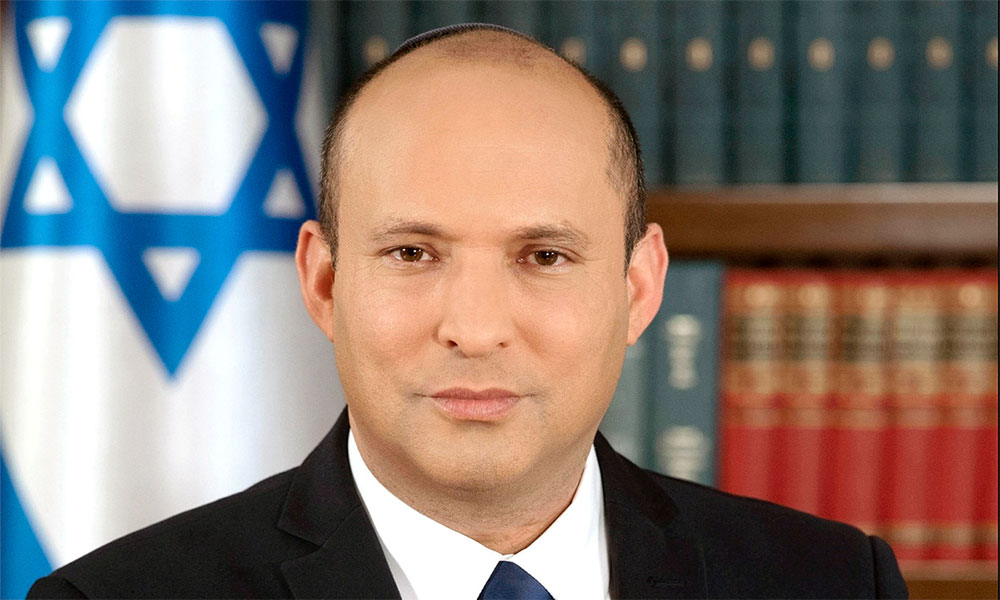When Russia invaded Ukraine in late February, an interesting overlap emerged in Israeli public discourse. Some of the major voices opposing Naftali Bennett and Yair Lapid’s government, from both the radical left and the nationalist right, began attacking Ukraine as well.
To be clear, a strong majority of social media participants and professional commentators sided with the victims. In the first few weeks of the war, most Israelis shared the pain of Ukrainian citizens, heaped solidarity upon the refugees and displayed admiration for Volodymyr Zelensky’s stout heroism.
And yet, mirroring the recent Israeli election campaigns, two extremist currents crisscrossed the majority opinion. On the far left, some voices insisted on blaming the war on NATO, the United States and “Western soft imperialism” for provoking the Russian bear. Disregarding the wishes and hopes of the majority of Ukrainians, such far-left critics accused the West of encouraging the Ukrainians to dream of Westernizing.
By contrast, the mainstream left, including civic liberals and social democrats, voiced heartfelt solidarity with the suffering populace and especially the refugees. Likewise, the moderate right agreed with Bennett and Lapid on the moral necessity for Israel to denounce Putin’s war of conquest, while keeping a sensitive eye on its vital security interests vis-à-vis Syria, Lebanon and, especially, Iran.
This alignment of moderation, realpolitik and humanism left Benjamin Netanyahu and his immediate circle looking increasingly out of touch with history. The ousted prime minister himself said very little, but among his leading mouthpieces and electoral base the new theme quickly emerged: If you are anti-Bennett, come join us in an anti-Zelensky, anti-Ukrainian campaign. Soon, many of those who had been busy beating up on Bennett and Lapid ever since June 2021, when they created a government, now began blaming the Ukrainians for their forebears’ sins.
Their most successful move was, of course, to invoke the Holocaust. For days, debate raged in almost every major media outlet about the extent and significance of pre-Nazi, collaborator and post-Nazi Ukrainian antisemitism. In this instantly heated arena, into which some respected historians were dragged willy-nilly, few stopped to ask themselves whether Ukrainians living today ought to pay for their grandparents’ sins with their lives and their country’s independence.
In fact, the argument had less to do with history than with domestic political frustration. More than one-third of Israelis voted for Netanyahu, and their disillusion following his ousting is growing stronger. The Bennett-Lapid government did not fall within a couple of months, as Bibi’s cronies had prophesied; instead, it pulled off several important tasks during its first ten months in power. Its right-center-left-Arab coalition government is surprisingly stable. A budget finally passed after almost three years of Netanhayu-era stalling.
Both Bennett and Lapid have kept their political language subdued and polite, putting a long-overdue stop to Netanyahu-style tirades. A new political conversation has begun to emerge, led especially by Lapid, who carries the triple flag of liberalism, Jewish national identity and cultural inclusiveness. Netanyahu, whose trial is crawling at a snail’s pace, was forced to withdraw to his villa in Caesarea while his base opposed anything Bennett favored.
Hence the anti-Ukrainian hullabaloo. But it hasn’t gone well. When Bennett unexpectedly jetted to Moscow and Berlin, Netanyahu’s son Yair barely managed to tweet his venom for the “scoundrel, photo-op seeking” prime minister before it became known that Bennett had the blessing of both Putin and Zelensky, as well as the major Western powers. Globe-trotting statesmanship had been a cherished Netanyahu specialty; competition from Bennett on this front was an unwelcome surprise.
In the short run, against a grim horizon for Ukraine and world stability, Israel stands to lose like any other member of the international community. But Bennett’s diplomatic mission, regardless of its outcome, at least means Israel is now able to act as a top-league mediator in other people’s wars. It compensates, somewhat, for our need to tread softly with Russia.
With the current Israeli prime minister as a globally respected would-be peacemaker, a broader moral change may be at hand. Even if a person is the great-grandchild of a persecutor, and even if their last name is Khmelnitsky or Demjanjuk, they do not deserve to have their country conquered, their children bombed and their asylum applications rejected out of hand. The anti-Ukrainian buzz on the right-wing fringes of Israeli social networks in 2022 should be seen for what it is: contempt for human life, disrespect for the principle of liberty and, yes, cheap manipulation of the Holocaust.
If the Bennett-Lapid government survives and flourishes, I believe that their leadership could help weaken both nationalist extremism and abuse of the historical past. More fundamentally, it could allow the State of the Jews to treat its own Jewish identity more liberally and more generously.
Fania Oz-Salzberger is an Israeli historian and essayist and a professor at the University of Haifa.



The War has been going on for 7 years, snd you finally noticed…hurah
Trump canceled NATO, but at that time you were lauding him as the messiah.